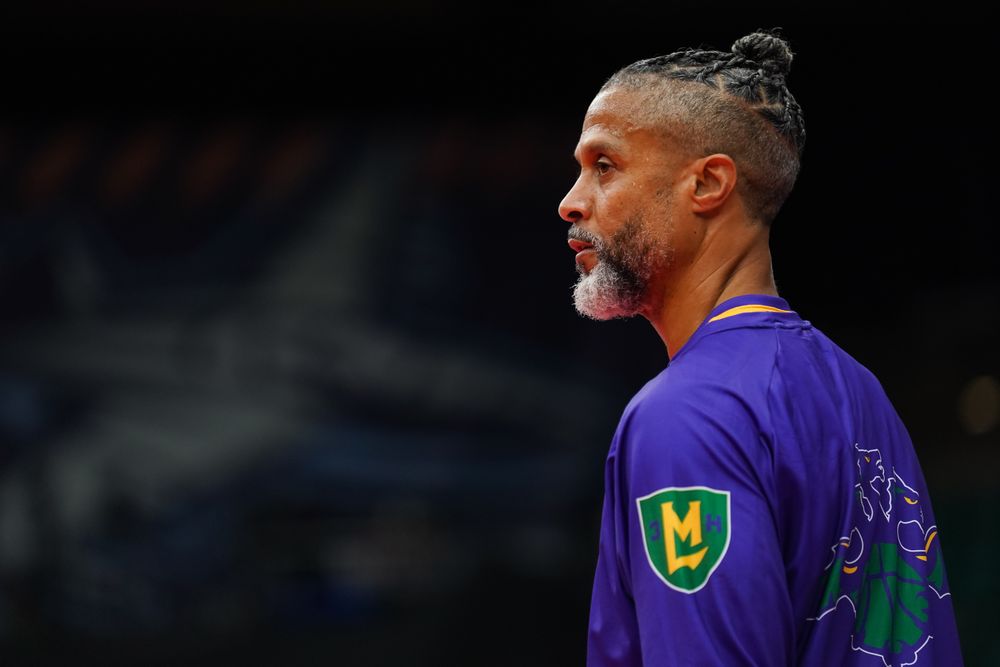There are only a handful of truly radical Black athletes. Mahmoud Abdul-Rauf was one of them.
Nearly two decades before Colin Kaepernick took his knee, Abdul-Rauf did the same. On March 12, 1996, the third overall pick in the 1990 NBA draft refused to stand for the national anthem. As a result, he was suspended for one game and fined $32,000. He, the player’s union, and the NBA came to a compromise that he could stand and pray with his head down while the anthem played. The player, who led the league twice in free throw percentage, was traded after the season and eventually quietly forced out of the league.
You can read Abdul-Rauf’s story in his own words via his new autobiography In the Blink of an Eye, written with Pulitzer Prize-winning journalist Nick Chiles and published by Kaepernick Publishing.
Even if he was pushed out of the league, Abdul-Rauf rubs shoulders with legends.
Muhammad Ali refused to join the army, famously stating that he “ain’t got no quarrel with those Vietcong,” got stripped of his boxing license, and almost spent three years in prison for it. Following in Ali’s footsteps, Lewis Alcindor Jr. changed his name to Kareem Abdul-Jabbar and became an outspoken activist while also battling on the court as the best basketball player alive. He notably refused to participate in the 1968 Olympics because he did not want to represent a country that didn’t represent him. Tommie Smith and John Carlos went to that Olympics in ‘68 and competed in the 200-meter sprint, winning the gold and bronze medals, respectively. These two men opted for a more in-your-face style of protest and raised their fists, giving the world a Black power salute on the podium as the “Star-Spangled Banner” played. It’s probably the most iconic photograph in Olympic history. In contemporary times, who could forget Kaepernick, who endured racist vitriol and was effectively banned from football in his prime simply because he kneeled during the national anthem in protest of police brutality?
We love to see athletes be fierce competitors and achieve what seems like superhuman feats with just their minds and bodies, but all praise is due to men and women out there who really stand for something and put their lives and livelihood on the line.
